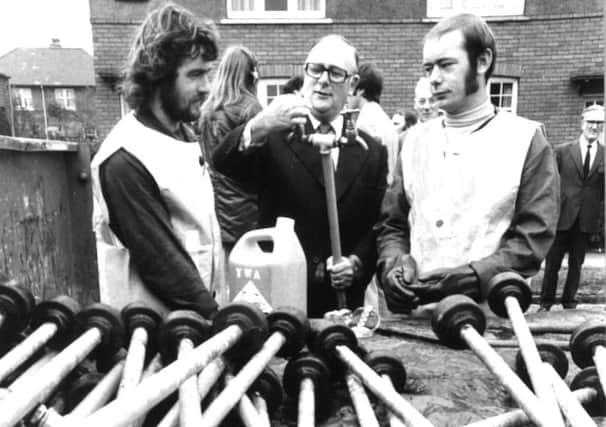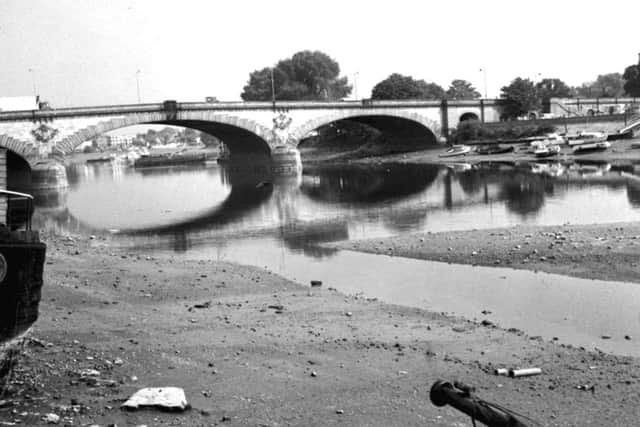David Behrens: Memories of 1976 heatwave show our resilience has evaporated


Since when, for example, has it been impossible for us to walk three yards without having to chug on tepid water from a plastic bottle carried about our person?
I’m sure there is sound medical evidence for the benefits of keeping oneself hydrated, but we seem to have confused protection with obsession. It’s one thing to dive into the house for a refreshing cold drink; quite another to carry one with you at every waking moment.
Advertisement
Hide AdAdvertisement
Hide AdMany of us will have been casting our minds back to the heatwave of 1976 and wondering whether we are better or worse prepared for the eventuality we least expect in Britain: a spell of fine weather.


The chief difference, it seems to me, is that in those days we were still used to being ordered around. Governments issued instructions, not aid.
Such advice as there was concerned preserving water, not drinking it. Share a bath and put a brick in the cistern, we were told, in the commercial breaks between Opportunity Knocks and George and Mildred. Keep calm and carry on. It was the Blitz spirit all over again.
Some streets had their water turned off at the mains. Stand pipes were dotted along the pavements, and you had to fill a bucket if you wanted to put the kettle on. They served as a warning to the rest of us: our street might be next if we filled our baths with more than the regulation five inches of water.
Advertisement
Hide AdAdvertisement
Hide AdNo-one suggested that we might instead take a shower; they were an American fad.
Bottled water was not, as teenagers today insist on saying, “a thing”. If you went into Morrison’s and asked for Evian, they would look at you as if you were foreign.
I was at college in Cardiff that June. I drove down there every week in my old red Mini, which had no air conditioning. No British car did, but mine had hardly any floor either, which improved the ventilation somewhat.
It was dry that year from March to September. The water level in the Ladybower Reservoir near Sheffield, over which the RAF had practiced for the Dam Busters raids on Germany just 33 years before, was so low that the rooftops of the drowned village of Derwent could be seen once more,
Advertisement
Hide AdAdvertisement
Hide AdEventually, a Minister for Drought was appointed. Denis Howell was his name, but his arrival coincided with a change in the weather. Wherever he went, it clouded over. Some wondered if his actual presence caused rain.
Our expectations have changed since then. The national infrastructure is more robust, and although there have been murmurings this week about saving water, we take for granted the availability of supplies which to other generations were precious. It takes an event like the conflagration on Saddleworth Moor to remind us that we can’t be blasé.
In any case, whatever softening of our national character has gone on here, we have nothing on Americans – many of whom are now demanding that they be allowed to take animals onto aeroplanes and other public conveyances for “emotional support”.
There has been a 40 per cent increase in such requests in the last year, and the practice is now so commonplace that the big airlines are petitioning politicians to change the rules. In one case, United Airlines, reduced to running a Noah’s Ark, had to deny access to a passenger with what was said to be an emotional support peacock.
Advertisement
Hide AdAdvertisement
Hide AdI mention this not just because – as the proliferation of showers has proved – today’s fads in America are ours tomorrow, but to illustrate the extent to which we have slid in four decades from self-sufficiency to reliance on anything except our own resourcefulness to get us through.
This is more pronounced still if you go back a generation further. How would today’s young people react if they were told to leave home for two years while they put in their National Service?
An hour’s square-bashing with a bottle of Highland Spring stuffed in your kit? Try running that past the sergeant major.